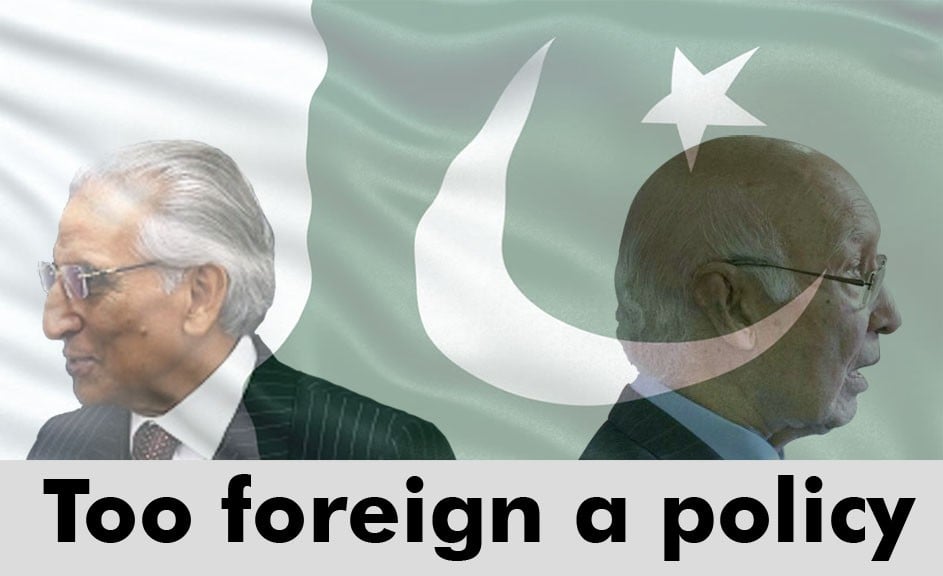
Looking at our foreign policy options vis a vis our neighbours and allies in a fast changing world

It might seem odd how the house arrest of someone like Hafiz Saeed makes the people in this country start thinking in terms of foreign policy. His arrest is indicative of a foreign policy shift, they are convinced, because the push has come from ‘outside’.
It is certainly not a fulfillment of the National Action Plan as the ‘state institutions’ would like one to believe, but it could well be in the ‘national interest’.
In our Special Report today, we have tried to look at how the arrest of Hafiz Saeed pans out for Pakistan’s foreign policy which has stayed India-centric for most parts of our history and where people like Saeed have been seen as strategic assets. They have been allowed to shape the Kashmir policy and let loose with big protest rallies each time Pakistan was close to giving India a most favoured nation (MFN) status as per WTO requirements. Lately, he had often blamed India for waging a water war against Pakistan, precluding all possibilities of constructive engagement with an influential dominant neighbour.
Why exactly was Pakistan pushed to put Saeed under house arrest has been variously explained. But the real game changer in the world politics, as also for Pakistan, is Donald Trump’s entry into the White House.
Pakistan may appear to have aligned towards China in a major way, at the expense of all its other neighbours, especially in relying too much on the potential benefits of China Pakistan Economic Corridor, but it has not yet given up on the United States which remains a major strategic partner. Most analysts, therefore, see Saeed’s arrest as a preemptive allaying of Trump’s fears about Pakistan "harbouring extremists".
Read also: Too foreign a policy
In our Special Report today, we have looked at Pakistan’s relations with China, Iran and Afghanistan and how prepared it is to realign its foreign policy in the face of the changing realities. One question that we have only partially addressed is the virtual invisibility of the civilian government from the foreign policy sphere. As former foreign minister Hina Rabbani Khar says in her interview: "by not appointing the foreign minister, the government has weakened the foreign office". Is that why the ISPR chief must explain Hafiz Saeed’s arrest to the nation and not any other government functionary?